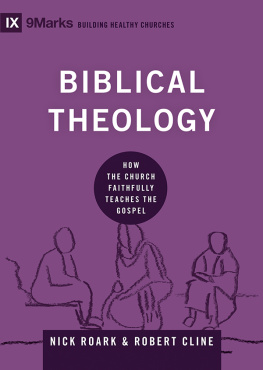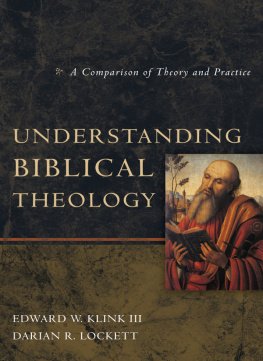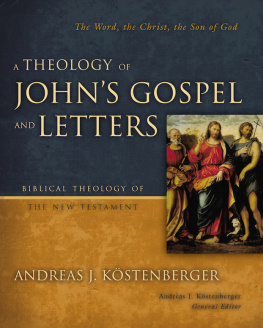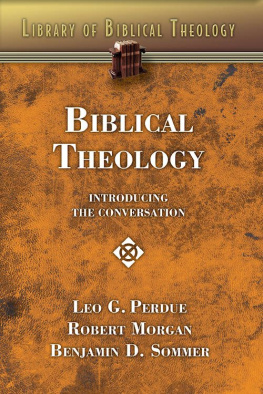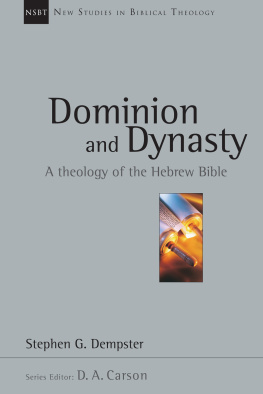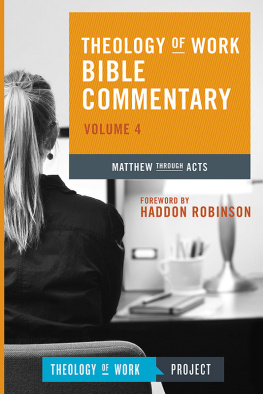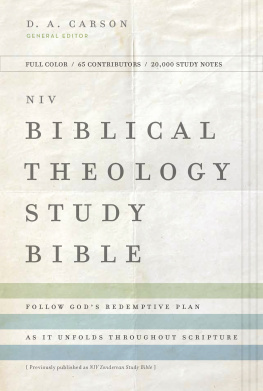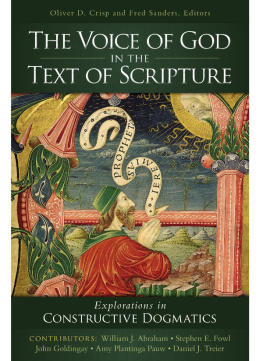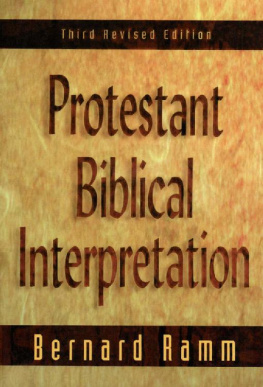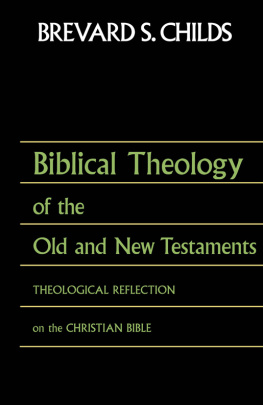Robert D. Miller II, OFS
The Great Divide
Introduction
Perhaps at no time since the 1960s has the world of biblical scholarship been so awash with works of Biblical Theology and Theological Interpretation. What was, for a time and at least in many circles, taboo has become once again au currant . This sort of thing is not what this book is about.
When biblical theology elucidates major themes, themes such as covenant, grace, people of God, and prophetic witness, it does so ordinarily on its own terms, unpacking for the reader in homiletic style, albeit more academic-sounding, what exegesis has discovered. With regard to theology, this at most leaves room for a dialogue. The exegete has something to say on a theological topic; the systematic theologian (or moral theologian or the like) has something else to say on the same subject. Together, this ought to benefit the Church. That is not what this book is about.
The Second Vatican Councils Constitution on Divine Revelation, Dei Verbum , says in paragraph 24 that the study of Sacred Scripture must be the soul of theology. This idiom, velute anima sacra theologiae , is borrowed from Leo XIIIs Providentissimus Deus . This phrase does not mean that exegesis is a dialogue partner with theology, the practice now increasingly common. Nor does it mean that the Bible is to be the basis of theological research and practice, as if every good book on soteriology or medical ethics ought to begin with a chapter on the Bible, or every seminary course on grace or sacraments begin with an opening session on the biblical materialpractices not altogether rare nor at all wrong in themselves. In fact, such practices are enjoined upon theologians in many other documents. Optatum totius 16 asks that moral theology be nourished more on the teaching of the Bible (it is not clear what exactly it is to be more [ magis ] than, but presumably more than moral theology of the casuistic manuals of 19001960). Benedict XVI, in Verbum Domini 35, stated that, Where theology is not essentially the interpretation of the Churchs Scripture, such a theology no longer has a foundation.
Other theologians and biblical scholars have observed this impasse: serious scholarly work on the Bible seems to be of little use to practicing theologians. Some are sure it is the fault of the notorious historical-critical method. The opening volley in this challenge was probably an often-reprinted 1980 article in Theology Today by David Steinmetz of Duke Divinity School titled The Superiority of Pre-Critical Exegesis.
Origins of the Impasse
The intellectual heritage of the historical-critical method is much debated. Scott Hahn, Benjamin Wiker, and Ral Kerbs maintain that its founding fathers are Baruch Spinoza and Thomas Hobbes and the rise of rationalism.
John Barton has argued that the origins of the historical-critical method are considerably earlier and far different. He traces higher criticism to the Renaissance and its return to the sources,
In fact, says Barton, higher criticism is older than that. It derives from Aristotles Poetics , and is visible in Jerome (esp. De viris illustribus ) and in the patristic School of Antioch.
Hitherto, the terms higher criticism, historical-critical method, and plain sense have been used interchangeably and without explicit definition. Let us provide a bottom-line definition for the historical-critical method. For the Bible to be understood, this method holds, it has to be seen within its historical Sitz im Leben , within the larger context of ancient Near Eastern culture as determined by archaeological discovery and the tradition of comparative philology.
Yet, as Patricia McDonald has observed, gains in biblical understanding, although of intrinsic interest to scholars, have often turned out to be scant fare for sustaining the life of the religious communities to which those scholars belong. it is the fault of both the exegetes and the theologians.
Theologians of the Post-Tridentine Church all the way up to the conservative neo-Scholastics Joseph Kleutgen, Louis Billot, and Ambroise Gardeil in the nineteenth century had been content to use Scripture to provide a set of predictable proof-texts for theological positions. Pierre Benoit and Luis Alonso Schkel stand out among them.
Yet, on the whole, their work was largely bypassed... , particularly in the United States, because the American... systematic theologians were so focused on the relatively unbiblical systems of Rahner and Lonergan. The few opponents of this sort of moral theology, heirs of mid-century Thomistic theologians Marie-Michel Labourdette, Pietro Parente, and their reaction to Nouvelle Thologie which never went back to the Bible in the first place, today emphasize Aristotle and the Thomism of the 1950s overlaid with John Paul IIs anthropology.
On the other hand, exegetes show little interest in a theological appropriation of their work. Again, there were some mid-century overtures: Raymond Brown hoped his Introduction to the New Testament would have a positive pastoral effect for the church and future Catholic leaders. Yet, as Patricia McDonald explains:
The specialization within the exegetical enterprise leaves exegetes unable to engage with the fundamental theological questions underlying the place of the Bible in Christian life... Younger biblical scholars are much less likely to be ordained men who belong to a residential religious community. So... their experience is less likely to include an extended education in philosophical and theological disciplines that is integrated into the communitys apostolate and the Churchs liturgical life and structures... In consequence, an exegetes conversation partners are much more likely to be scholars from other Christian denominations or from the secular academy than the theologians from his or her own tradition.
Luke Timothy Johnson came to the same conclusion. The latter statement is simply wrong, as many nonbelievers populate the ranks of the biblical academy, and the Antiochus example is exactly the sort of research most biblical scholars do. The 2008 XII Bishops Synod on The Word of God in the Life and Mission of the Church rightly wrote in its Propositiones , An unproductive separation exists between exegesis and theology even at the highest academic levels (no. 27).
The Necessity of Hermeneutics
For reasons I have already outlined at the start of this book, some may object that the gap between exegesis and theology has already begun to be bridged. It cannot be disputed that some biblical interpretation is engaged in conversation with faith communities in the context of the world at large. My contention, however, is that this is merely Wissenschaft plus pious reflection or parenesis. that is homiletics, not hermeneutics.
The renewed interest since the 1990s in what the text means , not only meant, in its relevance for faith, is laudable. But although biblical scholars of the 1950s and 1960s regularly published discussions of the nature of revelation, those of the 21st century have no experience over the preceding decades with hermeneutics and so began to do theological interpretation without any theory. And as K. H. Miskotte wrote, Exegesis is only scientifically responsible if one lets oneself be led by a thoughtful hermeneutic. The scholars hermeneutic is determined by what they see as the ultimate reference of theological language, but alsoand this will be the focus of this bookby how they see revelation mediated.


